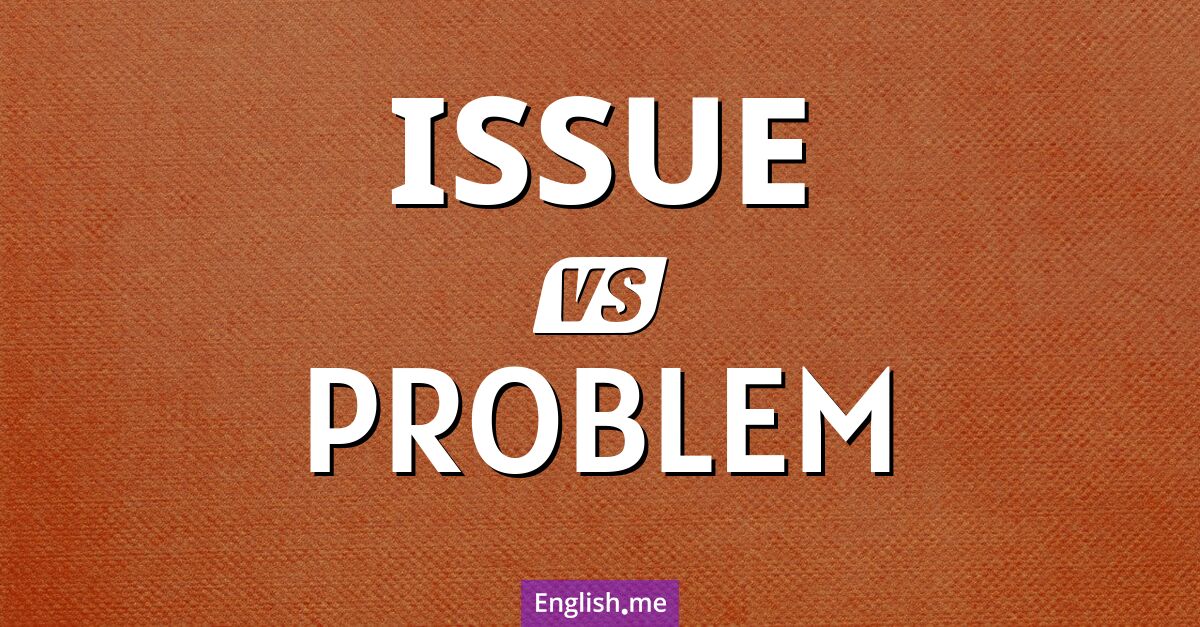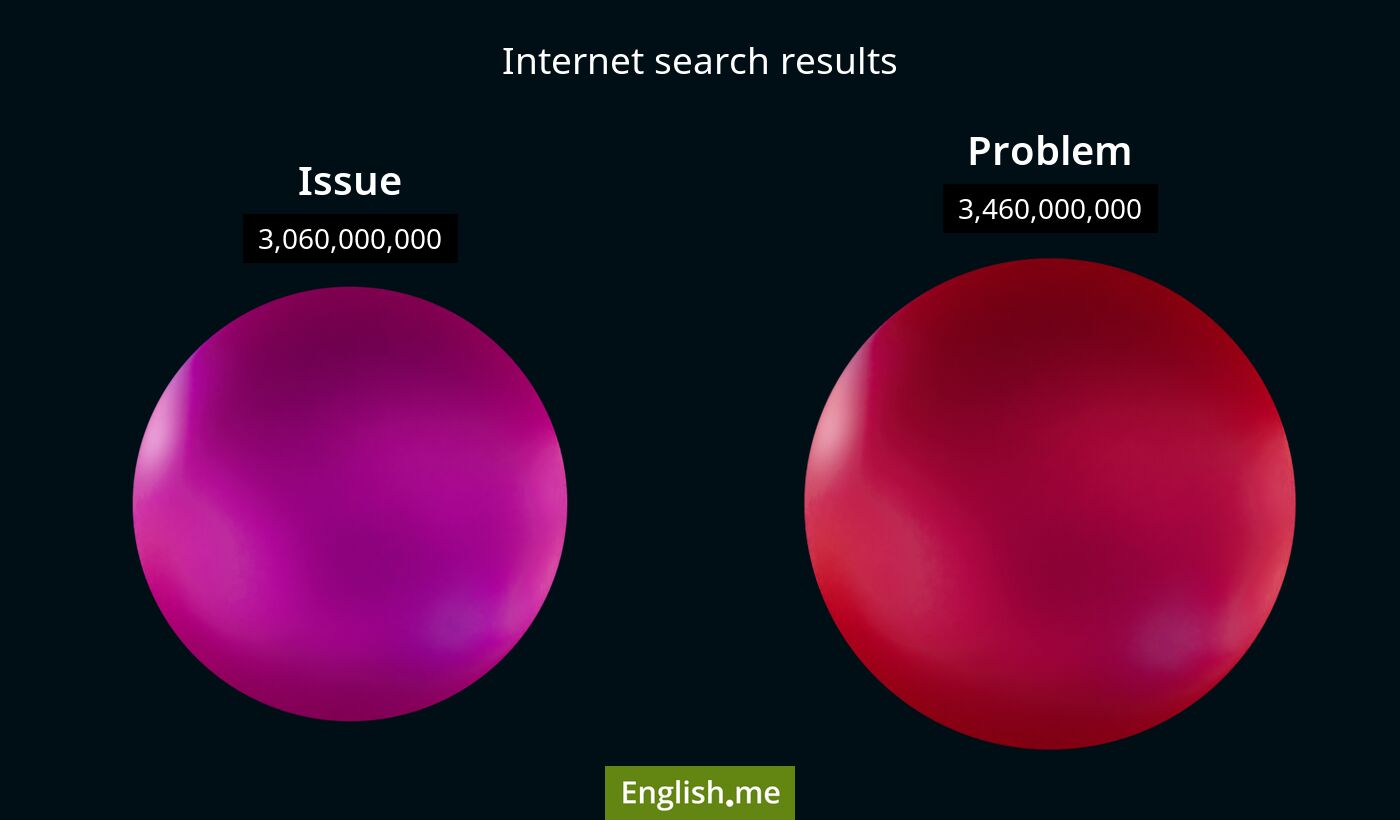"Issue" vs "problem": understanding the subtle differences
Reviewed and edited by  Anwar Kareem 04/01/2025, 22:51
Anwar Kareem 04/01/2025, 22:51
English.me team member

 What is similar?
What is similar?
Both "issue" and "problem" refer to matters that require attention or resolution. They can describe situations that are troublesome or challenging, and are often used interchangeably in everyday language to denote something that needs to be dealt with.
 What is different?
What is different?
The word "issue" can refer to a topic for discussion, distribution, or concern and may not always carry a negative connotation. "Problem" generally implies a difficulty or obstacle that needs to be solved and usually has a more negative tone.
 Which one is more common?
Which one is more common?

 Examples of usage
Examples of usage
Issue- The magazine's latest issue is available now.
- She raised an important issue during the meeting.
- Environmental issues must be addressed urgently.
- We need to find a solution to this problem quickly.
- He has a problem with understanding complex math concepts.
- The main problem with the project was poor time management.

 English
English español
español française
française italiano
italiano deutsche
deutsche 日本語
日本語 polski
polski česky
česky svenska
svenska Türkçe
Türkçe Nederlands
Nederlands